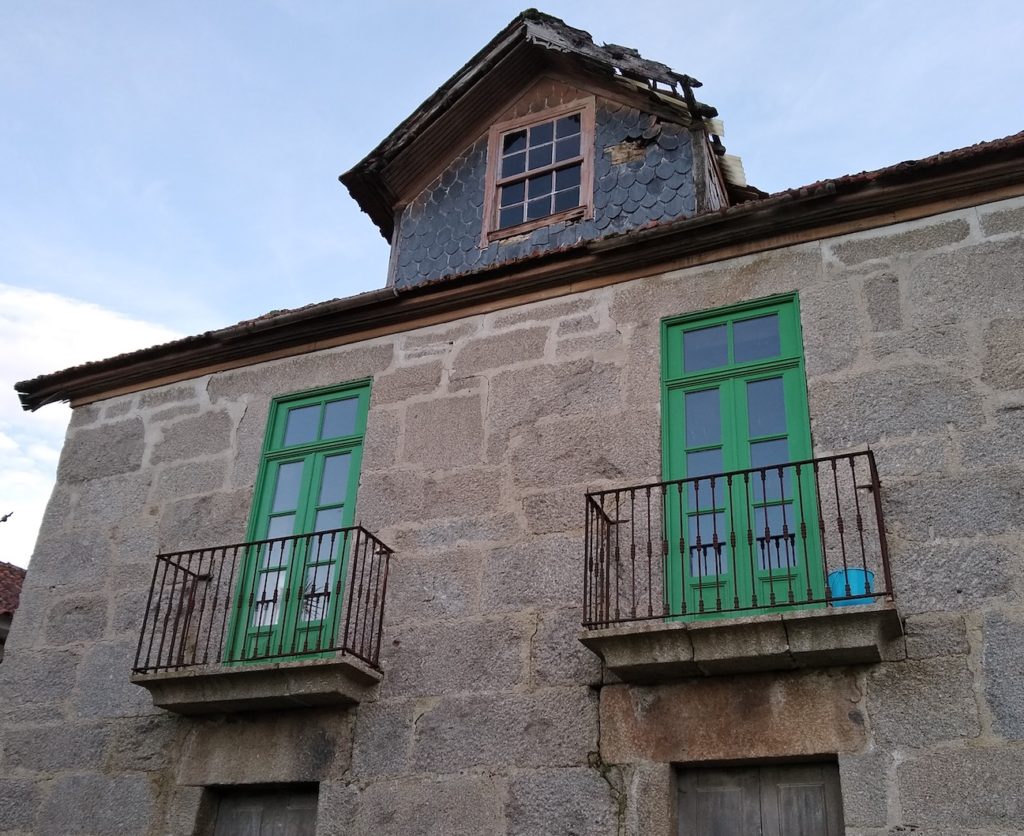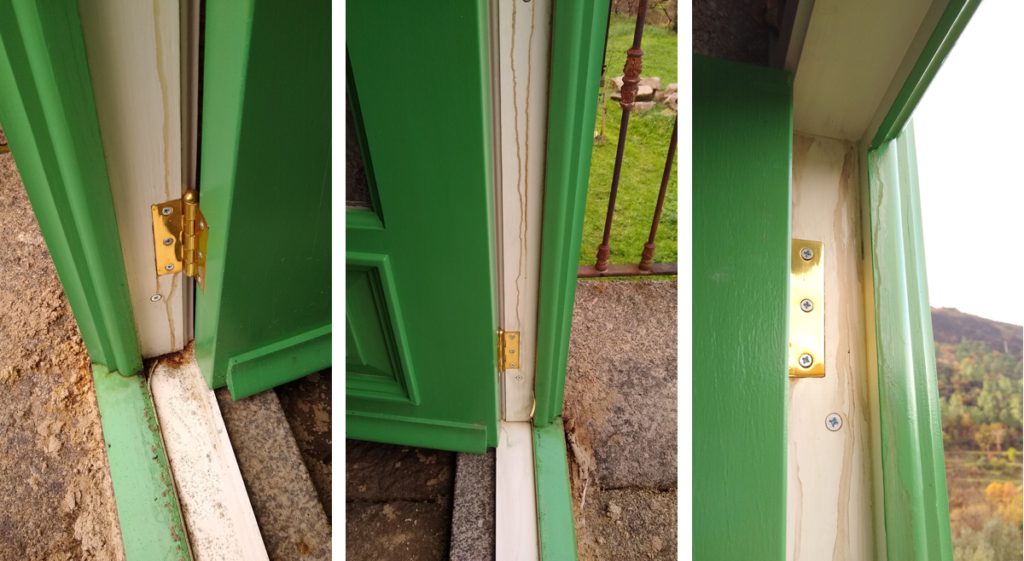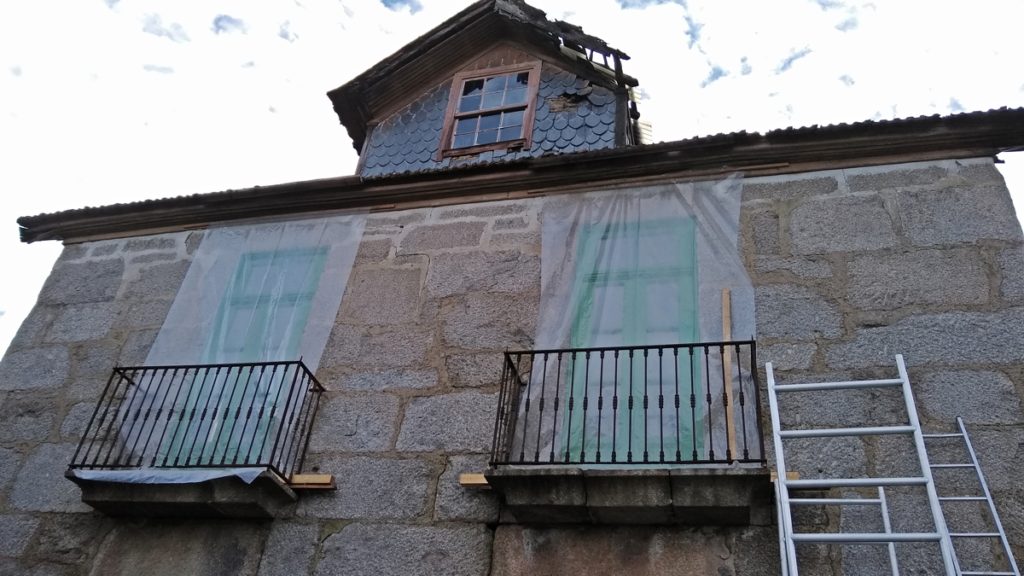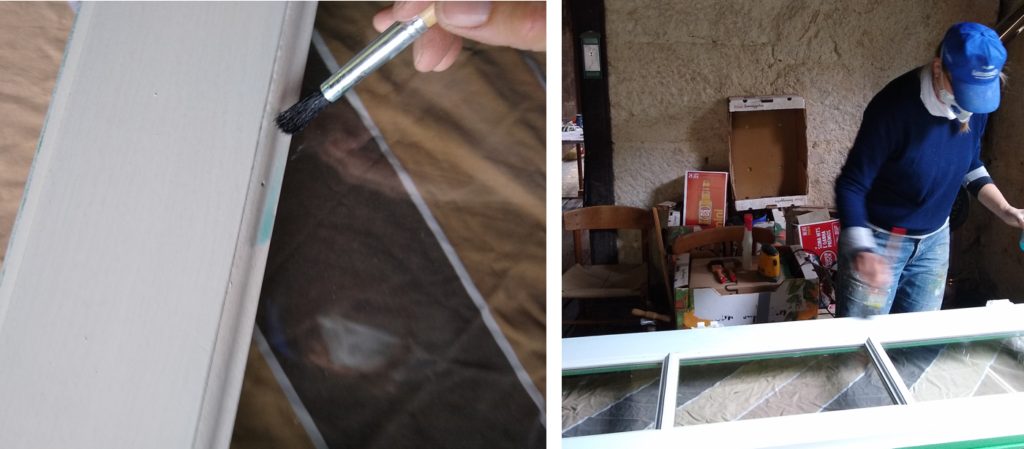At the beginning of December we enthusiastically shared our new sash windows. In the same period, we also installed the first new balcony doors, freshly painted and with the glass installed by ourselves. It looked amazingly beautiful:

The balcony doors are very similar to the original doors. While the new variants have one window more and double glazing and are fitted with frames and thresholds. Which should keep out the rain, wind and cold. We were very happy with the result.
After that…
Until the annual December-rain-month started. More than 20 mm fell every day for three weeks in a row. After a few days like that, the ruin starts to seep like a bad raincoat. Before, the water would run in underneath the old balcony doors, but now… too?!?!?!?
It was terrible: There was so much rain that the water seemed to come in through every stone and crack of the facade. Leaks that we thought came through the old doors turned out to be in the façade wall of 50 cm thick.
Fortunately, the doors were well painted, but that didn’t stop a phenomenon I didn’t know yet:
The chestnut wood started to bleed.

Well, maybe I did know… When I had primed the first windows, I noticed something screened through the paint. Some kind of rust spots or some gray markings, as if the paint did not cover well. After some research, I read that chestnut wood can bleed, caused by contact with water. The wood has a high level of tannin, which causes that reaction. I switched to more expensive primer, which claimed to block this reaction. Obviously, that didn’t help.
But of course, there is more to it here: The facade is leaking. And when it rains and blows hard, doors that turn inwards don’t close properly, causing the frame on the inside to get wet.
Two steps forward and one step back.
After I dried my tears and the doors and we accepted the setback, we looked for solutions. We bought draft excluder tape, which is going to stop the rain from being blown into the frames. I found another remedy against bleeding wood. And we wrapped everything in plastic until the weather will be warmer and drier.

Spring
Now ‘Abril, águas mil’ is nearly over, we can go ahead again. In past weeks, I have treated the next balcony door with shellac. That is a product, derived from lice, that should prevent the wood from bleeding. The first tests are promising.
Shellac flakes must be dissolved in 96% alcohol before you can apply it. This was not easy to obtain last month, because of COVID-19. You can also dissolve it in denatured ethanol, but that gave me a quite headache.🥴

When I’m done painting, we’re going to install this door. And then we’ll see if we have to accept another setback…
Useful Portuguese words:
| before | antes |
| after | após |
| after that | depois disso |
| leakage | fuga |
| tannin | tanino |
| chestnut wood | madeira castanha |
| shellac | goma laca |
| alcohol | álcool |
| denatured ethanol | álcool azul |
| free trans: April showers bring May flowers | abril, águas mil |
| setback | contratempo |
April 30, 2020

